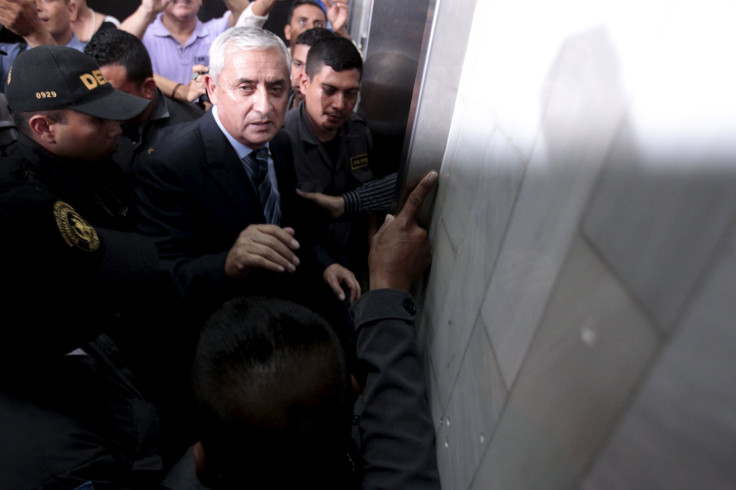After Graft Scandal, Guatemala Election Seen Heading To Run-Off

GUATEMALA CITY (Reuters) - Guatemalans still reeling from a graft scandal that felled their president this week, head to the polls on Sunday to elect a new leader, though a tight race is seen heading to a second round run-off.
Otto Perez resigned as president on Thursday, and was jailed while a judge weighs charging him in a customs corruption racket that gutted his government and plunged the poor Central American country into its worst political crisis in decades.
Voter anger over corruption has helped a little-known comedian to surge in opinion polls, while the three main contenders have vowed a crackdown on graft after mass protests on the streets.
Recent polls show Jimmy Morales, a 46-year-old centrist and actor whose slogan "not corrupt, not a thief," has resonated with disenchanted voters, is head to head with earlier favorite Manuel Baldizon, 45, a conservative businessman.
After maintaining a sizeable lead over Morales for months, Baldizon had around 23 percent support, just shy of Morales' 25.0 percent, according to recent polls.
While Morales has not laid out a clear political agenda, he has vowed to fight poverty by improving the education system, decentralizing the budget and decentralizing government power as well as ending government graft.
"Zero tolerance for corruption. That will allow us to improve and take back our institutions to restore confidence in them," Morales told Reuters in a recent interview.
Baldizon, a congressman for the center-right opposition party Renewed Democratic Liberty Party (Lider), promises to combat tax evasion, promote government austerity and modernize the state, while also pledging to curb graft.
"Guatemala deserves that we make an effort to raise up a country destroyed by corruption," Baldizon, a fervently religious lawyer, said at a political rally on Saturday.
But corruption allegations have also smudged the ticket, with Lider's vice presidential hopeful Edgar Barquin, a former central bank chief, accused of criminal association and influence trafficking by a powerful United Nations-backed anti-graft commission. He has not been charged.
Leftist candidate Sandra Torres, the ex-wife of former President Alvaro Colom, narrowly trails Baldizon and Morales. She has vowed to fight poverty by increasing social spending by 0.5 percent of gross domestic product and lashed out at her rivals.
"Voting for Baldizon is voting for Perez," she said, accusing him of ties to the disgraced ex-president.
Mario Garcia, the candidate from Perez's right-wing Patriot's Party, is polling well behind the front-runners.
If, as expected, no candidate wins more than 50 percent of the ballots cast by Guatemala's 7.5 million registered voters, the top two will face a run-off on Oct. 25.
But high rates of indecision and low expected turnout make outcomes hard to predict, analysts warn.
"I don't know who to vote for since they are all corrupt," said Romeo Cheliy, a 36-year-old construction worker from a small northwestern town.
Perez Molina, a retired general who came to power in 2012 promising to be tough on crime, was set to leave office in January. But Congress this week transferred power to his vice president Alejandro Maldonaldo following his resignation.
As leader of Central America's largest economy, Maldonado's successor will be tasked with tackling a stubbornly high poverty rate despite nearly uninterrupted economic growth since the 1990s, two decades after the end of a bloody 1960-96 civil war.
(Additional reporting by Sofia Menchu; editing by Simon Gardner and G Crosse)
© Copyright Thomson Reuters 2024. All rights reserved.











